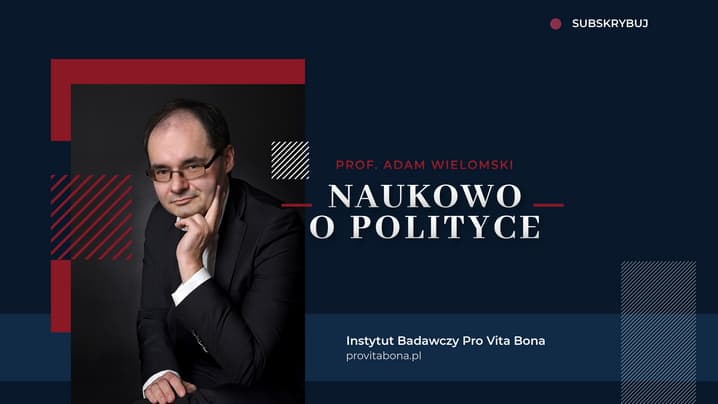Donald Trump is currently renegotiating Free Trade with Canada, a country where over 80% of its trade is with the United States; and where probably over 80% of the population detests him. Canada’s armed forces are notoriously underfunded, and Canada’s contribution to NATO has been ridiculously small. Canada is quite happy with being a „free rider” on U.S. military defense spending, spending next to nothing on its own military. It is also to some extent a „free rider” on the U.S. healthcare system, making use of advances in medical technology that only the more free-market-oriented medical system of the U.S. could bring about. Furthermore, the U.S. is where many wealthy Canadians go for health care, when they are tired of the ridiculous waiting periods for surgery such as hip-replacement at Canadian hospitals.
One of the main differences between Canada and the United States is that — with the possible, partial exception of the Western Canadian province of Alberta — most of the country would tend to fall into the camp of the „bluest” of the „Blue States.” If the left-wingers in the „Blue States” were frustrated by the Trump victory, one should just imagine how „small-c conservatives” have felt in Canada over many decades. The main origin of the term „small-c conservative” is a pointer to the fact that the „big-C Conservatives” in Canada, i.e., the Progressive Conservative party, were „ultra-moderates” and mostly spent their time fighting what they snidely called „cashew conservatives,” i.e., those who were presumed to be „right-wing nuts.” The net result of the failure of the Canadian Right has been the emergence of a political culture after the 1960s where outlooks similar to those of moderate Republicans and centrist Democrats would probably be considered as „far right.” Somewhat ironically, the entire „broader Right” in America, from Pat Buchanan (who once called Canada a „Soviet Canuckistan”) to David Frum (who once heaped disdain on Canadian wimpishness) probably have a rather similar view of America’s northern neighbor.
It can be said in defense of Canadian conservatism is that it has a long, fine, British-focussed tradition centered on „peace, order, and good government” — but it must be realized simultaneously that that tradition has been virtually extirpated today. Ironically, before the 1960s, Canada was a generally more substantively conservative country than the United States — and its politeness and „niceness” meant that it mostly avoided such negative aspects as racism and excessive commercialism. Indeed, before the 1960s, even the Canadian Left (as typified by the Co-operative Commonwealth Federation party), was mostly socially conservative, being rather friendly to traditional notions of family, nation, and religion.
Under Liberal Prime Ministers Lester B. Pearson (1963-1968), and Pierre Elliott Trudeau (1968-1984, except for nine months in 1979-1980), the country was taken through a series of wrenching transformations where Canada’s ruling paradigm was changed from the top. With most Canadians’ habitual deference to authority, they quickly became conformist „progressives.” Today, small-c conservatives in Canada face an uphill battle which compares very unfavorably to the situation in the United States. Given the left-liberal predominance in the Canadian media, in the education system (from daycare to universities), in the judiciary and justice system, in the government bureaucracies, in so-called high culture (typified by government-subsidized „Can Lit”), in North American pop-culture and „youth-culture”, in the big Canadian banks and corporations, and in the leadership of the main churches, any existing small-c conservative tendencies are being continually ground down. There is also the panoply of special-interest groups, who receive extensive government and some corporate funding. To try to imagine the Canadian situation, consider what American society would be like today if about nine-tenths of the states could be characterized as „Blue States.”
Given the virtual annihilation of a „small-c conservative” social base in Canada, politics has taken on a highly dreary and disheartening aspect for the Canadian Right. Despite the Conservative Party holding power under Stephen Harper from 2006 to 2015, that era was characterized by “ultra-moderate”, centrist measures. In the October 2015 federal election, Justin Trudeau (Pierre’s son) and his Liberal Party won a strong majority. This was a signal for dismantling whatever fragmentary conservative measures Harper might have been able to enact. Until the recent, disastrous trip to India, Trudeau was virtually unassailable in popularity. The recent dip in Trudeau’s popularity gives a fleeting hope that the Conservative Party may have some chance of winning the upcoming federal election, expected in 2019.
Canada has certainly been marked by massive social transformation and upheaval since the 1960s –driven mostly by the federal Canadian government of the Liberals — and it is likely that these trends will continue. For example, Canada was the third country in the world (after the Netherlands and Belgium) to recognize „same-sex marriage.” At the same time, it has embraced multiculturalism; mass, dissimilar immigration; affirmative-action (called „employment equity” in Canada); and programmatic „diversity” with a great intensity. Indeed, the federal Liberal Party (assisted by the incredibly ideologically energetic left-wing New Democratic Party) has been practicing „activist”, „transformational” politics in the last five decades, decisively transforming the social and cultural landscape to maintain itself perpetually in power.
During the Quebec referendum crisis of 1995, it was said that the failure of current-day Canada would tend to extinguish much hope in the world of creating „successful” multicultural societies. Indeed, Canadian traditionalists and conservatives might eventually be looking to various forms of „provincialization” or regionalization or so-called „cantonization” to challenge the federal government behemoth.
Mark Wegierski



Kanada jest blisko upadkowi, a Nowafundlandia musi sie odlaczyc aby zostac normalnym, niepodleglym krajem. W koncu to Nowafunldlandia dopiero w 1949 roku przylaczyla sie do Kanady, jednym glosem i jak mowia, nie ktorzy Nowofundlandczycy, byly to sfalszowane wybory. Kanada, a szczegolnie prowincja Ontario jest pelna bzdur, np. mezczyzni wogule nie maja praw w tym kraju z czym trzeba skonczyc. Rowniez przestepcy i zloczyncy sa chronieni przez policje a ofiary i poszkodowani sa przez nich przesladowani.